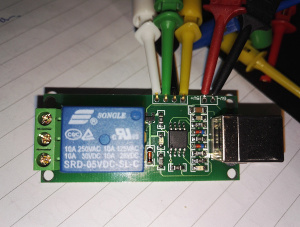

My monthly report covers a large part of what I have been doing in the free software world. I write it for
my donators (thanks to them!) but also for the wider Debian community because it can give ideas to newcomers and it s one of the best ways to find volunteers to work with me on projects that matter to me.
Debian packaging
Django and Python. I uploaded Django 1.9.7 and filed an upstream ticket (
#26755) for a failure seen in its DEP-8 tests.
I packaged/sponsored python-django-modeltranslation and python-paypal. I opened a
pull request on model-translation to fix failing tests in the Debian package build.
I packaged a new python-django-jsonfield (1.0.0), filed a
bug and discovered some regression in its PostgreSQL support. I helped on the
upstream ticket and I have been granted commit rights. I used this opportunity to do some bug triage and push a
few fixes. I also discussed the future of the module and ended up starting a
discussion on Django s developer list about the possibility to add a JSONField to the core.
CppUTest. I uploaded a new upstream version (3.8) with more than a year of work. I found out that make install does not install a required header so I opened a
ticket with a patch. The package ended up not compiling on quite a few architectures so I opened a
ticket and prepared a
fix for some of those failures with the help of the upstream developers. I also added a DEP-8 tests after having uploaded a
broken (untested) package
systemd support in net-snmp and postfix. I worked on adding native systemd service units to net-snmp (
#782243) and postfix (
#715188). In both cases, the maintainers have not been very reactive so far so I uploaded my changes as delayed NMU.
pkg-security team. The team that I started quietly a few months ago is now growing, both with new members and new packages. I created the required
Teams/pkg-security wiki page. I sponsored xprobe, hydra, made an upload of medusa to merge Kali changes into Debian (and at the same time submitting the patch to upstream).
fontconfig. After having read Jonathan McDowell s analysis of a bug that I experienced multiple times (and that many Kali users had too), I opened bug
#828037 to get it fixed once for all. Unfortunately, nothing happened yet.
DebConf 16
I spent some time to prepare the 2 talks and the BoF that I will give/manage in Cape Town next week:
- Kali Linux s Experience https://debconf16.debconf.org/talks/39/
- 2 Years of Work of Paid Contributors in the Debian LTS Project https://debconf16.debconf.org/talks/40/
- Using Debian Money to Fund Debian Projects https://debconf16.debconf.org/talks/41/
Distro Tracker
I continued to mentor Vladimir Likic who managed to finish his
first patch. He is now working on documentation for new contributors based on his recent experience.
I enhanced the tox configuration to run tests with Django 1.8 LTS with fatal warnings (python -Werror) so as to ensure that I m not relying on any deprecated feature and so that I can be sure that the codebase will work on the next Django LTS release (1.11). Thanks to this, I did discover quite a few places where I have been using deprecated API and I fixed them all (the JSONField update to 1.0.0 I mentionned above was precisely to fix such a warning).
I also fixed a
few more issues with folded mail headers that you can t inject back in a new Message object and with messages lacking the subject field. All those have been caught through real (spam) email generating exceptions wich are then mailed to me.
Kali related work
I uploaded a new live-boot (5.20160608) to Debian to fix a bug where the boot process was blocking on some timeout.
I forwarded a Kali bug against libatk-wrapper-java (
#827741) which turned out to be an OpenJDK bug.
I filed
#827749 against reprepro to request a way to remove selected internal file references. This is required if you want to be able to make a file disappear and if that file is part of a snapshot that you want to keep despite this. But in truth, my real need is to be able to replace the .orig.tar.gz used by Kali by the orig.tar.gz used by Debian those conflicts break the mirroring/import script.
Salt
I have been using salt to deploy a new service, and I developed
patches for a
few issues in salt formulas. I also created a new
letsencrypt-sh formula to manage TLS certificates with the letsencrypt.sh ACME client.
Thanks
See you next month for a new summary of my activities.
No comment Liked this article? Click here. My blog is Flattr-enabled.
 As previously mentioned, at the end of last year I got involved with a project involving the use of 1-Wire. In particular a DS28E15 device, intended to be used as a royalty tracker for a licensed piece of hardware IP. I d no previous experience with 1-Wire (other than knowing it s commonly used for driving temperature sensors), so I took it as an opportunity to learn a bit more about it.
The primary goal was to program a suitable shared key into the DS28E15 device that would also be present in the corresponding hardware device. A Maxim programmer had been ordered, but wasn t available in stock so had to be back ordered. Of course I turned to my trusty Bus Pirate, which claimed 1-Wire support. However it failed to recognise the presence of the device at all. After much head scratching I finally listened to a co-worker who had suggested it was a clock speed issue - the absence of any option to select the 1-Wire speed in the Bus Pirate or any mention of different speeds in the documentation I had read had made me doubt it was an issue. Turns out that the Bus Pirate was talking standard 1-Wire and the DS28E15 only talks overdrive 1-Wire, to the extent that it won t even announce its presence if the reset pulse conforms to the standard, rather than overdrive, reset time period. Lesson learned: listen to your co-workers sooner.
A brief period of yak shaving led to adding support to the Bus Pirate for the overdrive mode (since landed in upstream), and resulted in a search request via the BP interface correctly finding the device and displaying its ROM ID. This allowed exploration of the various commands the authenticator supports, to verify that the programming sequence operated as expected. These allow for setting the shared secret, performing a SHA256 MAC against this secret and a suitable nonce, and retrieving the result.
Next problem: the retrieved SHA256 MAC did not match the locally computed value. Initially endianness issues were suspected, but trying the relevant permutations did not help. Some searching found an implementation of SHA256 for the DS28E15 that showed differences between a standard SHA256 computation and what the authenticator performs. In particular SHA256 normally adds the current working state (
As previously mentioned, at the end of last year I got involved with a project involving the use of 1-Wire. In particular a DS28E15 device, intended to be used as a royalty tracker for a licensed piece of hardware IP. I d no previous experience with 1-Wire (other than knowing it s commonly used for driving temperature sensors), so I took it as an opportunity to learn a bit more about it.
The primary goal was to program a suitable shared key into the DS28E15 device that would also be present in the corresponding hardware device. A Maxim programmer had been ordered, but wasn t available in stock so had to be back ordered. Of course I turned to my trusty Bus Pirate, which claimed 1-Wire support. However it failed to recognise the presence of the device at all. After much head scratching I finally listened to a co-worker who had suggested it was a clock speed issue - the absence of any option to select the 1-Wire speed in the Bus Pirate or any mention of different speeds in the documentation I had read had made me doubt it was an issue. Turns out that the Bus Pirate was talking standard 1-Wire and the DS28E15 only talks overdrive 1-Wire, to the extent that it won t even announce its presence if the reset pulse conforms to the standard, rather than overdrive, reset time period. Lesson learned: listen to your co-workers sooner.
A brief period of yak shaving led to adding support to the Bus Pirate for the overdrive mode (since landed in upstream), and resulted in a search request via the BP interface correctly finding the device and displaying its ROM ID. This allowed exploration of the various commands the authenticator supports, to verify that the programming sequence operated as expected. These allow for setting the shared secret, performing a SHA256 MAC against this secret and a suitable nonce, and retrieving the result.
Next problem: the retrieved SHA256 MAC did not match the locally computed value. Initially endianness issues were suspected, but trying the relevant permutations did not help. Some searching found an implementation of SHA256 for the DS28E15 that showed differences between a standard SHA256 computation and what the authenticator performs. In particular SHA256 normally adds the current working state (

 My monthly report covers a large part of what I have been doing in the free software world. I write it for
My monthly report covers a large part of what I have been doing in the free software world. I write it for 
 Whoop! Looking forward to it already (though will probably spend it feeling I should be finishing my dissertation).
Outbound:
Whoop! Looking forward to it already (though will probably spend it feeling I should be finishing my dissertation).
Outbound:
 What happened in the
What happened in the